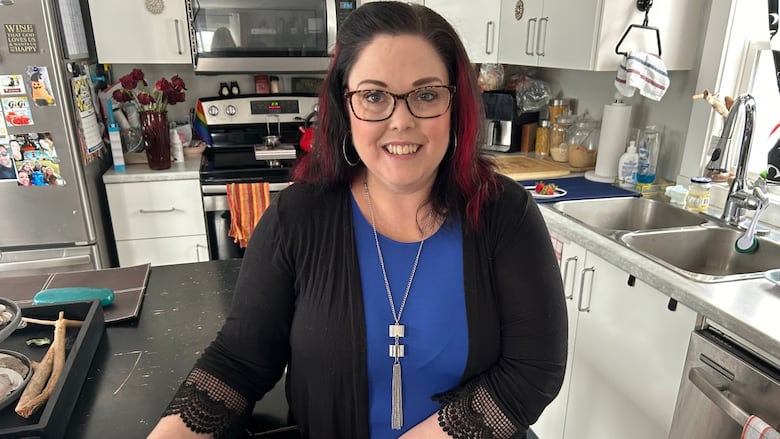Lower bridge, ferry costs mean less of a barrier for people going off-Island for health care
'Sometimes we didn't have the money to go across the bridge'

Living with a rare disease that comes with chronic pain hasn't been easy or cheap for P.E.I. resident Christine MacFadyen.
Just leaving the province to get treatment came with a hefty price tag of $50 to cross the Confederation Bridge — a cost that added up quickly, given that she's been unable to work and has had to make the trip for the past 16 years.
MacFadyen has granulomatosis with polyangiitis, or GPA, which causes swelling in small blood vessels.
The bridge toll, along with the cost of gas and hotels, has meant a major financial strain for her family. She estimates she had to cross the Northumberland Strait to the mainland roughly 25 times a year.
The cost associated with travelling off-Island for health care eventually pushed MacFadyen's family into bankruptcy.
"Sometimes we didn't have the money to go across the bridge and that was a barrier to getting the proper health care," she said.
That toll to cross the bridge to New Brunswick will fall to $20 as of this Friday, following an announcement by Prime Minister Mark Carney this week. Fares for passengers, cars and commercial traffic on the ferry service between eastern P.E.I. and Nova Scotia will also go down by 50 per cent.
MacFadyen no longer has to cover the bridge toll herself thanks to Hope Air, an organization that provides financial support to Canadians who need to travel to access medical care.
While she said the toll reduction will make a difference for others like her who have to travel out of province for health care, she thinks the cost should be free for anyone receiving medical treatment that's not available to them in this province.
"If [treatment is] not available on the Island, then we have no other choice," MacFadyen said.
The P.E.I. government does offer some out-of-province travel supports to Islanders, depending on their income, to cover costs like flights, ferry passes, gas cards, bus tickets and meals.
In a statement to CBC News, the province said it gave out 1,420 bridge passes and 44 ferry passes last year to people travelling for health care.
'The number one side effect of cancer is debt'
Grappling with debt from health-care expenses impacts more than just those with rare conditions.
Heather Mulligan, the Canadian Cancer Society's senior manager of advocacy for Atlantic Canada, said the organization often hears from Islanders who say the financial support available to them is not enough.

"The number one side effect of cancer is debt," Mulligan said.
Many people living with cancer on the Island have no choice but to travel out of province to get the care they need. Mulligan said some patients go to off-Island appointments every month.
She said lowering the bridge toll will eliminate some of the barriers patients face when accessing medical care.
"Reducing the bridge fees and reducing the ferry fees not only is an affordability announcement, one that is meant to bolster tourism and interconnectedness, but it eliminates a financial barrier that some Islanders have to face when accessing an essential care like cancer care," Mulligan said.
With files from Laura Meader


